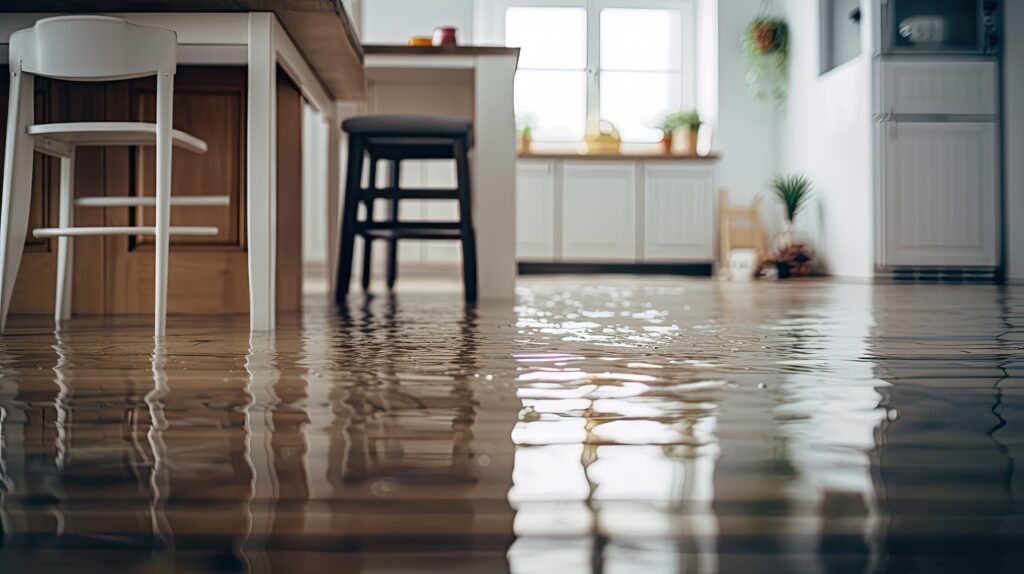Living in a rented property comes with its own set of responsibilities, including when emergencies arise. Knowing how to handle unexpected situations can prevent damage to the property and ensure your safety. This guide provides practical tips for tenants in various emergency scenarios.

Electrical Emergencies
Electrical problems can range from a simple power outage to more serious issues like electrical fires. If you experience an electrical emergency:
- Power Outage: Check if the outage is limited to your property. If it’s a broader issue, contact your electricity provider. If it’s just your property, check the fuse box and reset any tripped switches. Any that have tripped will be in the down position. Push these back up including the large red one.
- Sparking or Smoking Outlets: Turn off the power from the main switch (the large red one on the fuse box) and unplug all devices. Do not touch the outlet. Contact your landlord or letting agent immediately.
- Electrical Fire: Never use water to extinguish an electrical fire. Use a fire extinguisher rated for electrical fires if available or smother the fire with a heavy blanket. Call the fire brigade immediately and evacuate the property.
Gas Leaks
Gas leaks are dangerous and need immediate attention. If you smell gas or suspect a leak:
- Turn Off the Gas: Locate the gas shut-off valve and turn it off (usually found near your meter)
- Ventilate the Area: Open windows and doors to disperse the gas.
- Avoid Sparks: Do not use electrical switches, matches or any device that could cause a spark.
- Evacuate: Leave the property and contact the National Gas Emergency Service on 0800 111 999. Inform your landlord or letting agent as soon as possible.
Water Leaks and Flooding
Water leaks can cause significant damage if not addressed promptly. Here’s what to do:
- Shut Off the Water Supply: Locate and turn off the main water valve to prevent further flooding (there will be one inside the property, which may be listed on your Inventory. If you have problems with this then there should be one by the water meter for the supply from the house to the property)
- Identify the Source: If possible, find where the leak is coming from. This information will be useful for repair purposes.
- Contain the Water: Use towels, buckets, and other materials to contain and absorb the water.
- Notify Your Landlord: Report the issue to your landlord or letting agent immediately. They will arrange for a plumber to fix the problem.
Heating System Failures
During cold months, a broken heating system can quickly become an emergency. If your heating fails:
- Check the Thermostat and Settings: Ensure the thermostat is set correctly and the heating system is on.
- Bleed the Radiators: Sometimes, air trapped in the radiators can cause heating issues. Bleed the radiators to release any trapped air.
- Contact Your Landlord: If these steps do not resolve the issue, inform your landlord or letting agent. They will arrange for a heating engineer to visit as soon as is practically possible.
Locked Out
Getting locked out can be stressful, especially if you do not have a spare key. Here’s how to handle this situation:
- Contact Your Landlord or Letting Agent: They may have a spare key or can arrange for a locksmith to attend.
- Call a Locksmith: If you cannot reach your landlord, contact a professional locksmith and inform your landlord or letting agent about what has happened.
Please note that if you have lost your keys the cost of the call-out from the locksmith will be your responsibility.
Fire Emergencies
Fire emergencies are life-threatening and require immediate action:
- Evacuate Immediately: Leave the property as quickly as possible. Do not try to gather belongings.
- Call 999: Once you are safe, call the fire brigade.
- Do Not Re-enter: Do not go back into the property until it is declared safe by the fire brigade.
- Inform Your Landlord: Let your landlord or letting agent know about the incident.
Security Breaches
If you suspect a break-in or find that your home has been burgled:
- Do Not Enter: If you think the intruder might still be inside, stay outside and call the police on 999.
- Preserve Evidence: Avoid touching anything that might be evidence.
- Contact the Police: Report the incident and get a crime number.
- Inform Your Landlord: Notify your landlord or letting agent about the break-in.
Emergencies can happen at any time, and being prepared can make a significant difference. By knowing what steps to take, you can protect yourself and your home. Always keep the contact details of your landlord or letting agent handy and do not hesitate to reach out to them during emergencies.
At Belvoir Tunbridge Wells, we are committed to ensuring the safety and comfort of our tenants. If you have any questions or need assistance with your rental property, please contact us immediately. Stay safe and be prepared!










